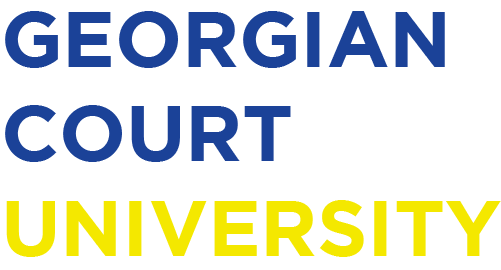In today’s fiercely competitive world, pursuing graduate degree programs has become imperative for professionals seeking career advancement or changing roles. For many online master’s students, a crucial consideration is the admission requirements, specifically whether the Graduate Record Examination (GRE) score is mandatory. However, there are plenty of accredited universities that offer online master’s programs that do not require standardized tests like GRE. This article delves into Online Master’s Programs No GRE requirement from esteemed universities.

Table Of Contents
Which Universities are Offering Online Master’s Programs No GRE Requirement
Here is a list of universities that are offering the online master’s programs no GRE requirement for admission:
- University of Wisconsin, Madison
- Gonzaga University
- Georgian Court University
- Saint Joseph’s University
- University of Vermont
- Colorado State University
- Northeastern University
- University of North Carolina, Wilmington
- Northcentral University
- University of Cincinnati
- Maryville University
- Colorado State University, Global Campus
- Louisiana State University
- Ball State University
- Ohio University
- University of Arkansas
- Saint Mary’s University, Minnesota
- Florida International University
- Regis University
- Boston University
- University of Miami
- University of Colorado, Boulder
- University of New England
- University of San Francisco
- American University
- Baylor University
- Emory University
- Western Carolina University
- Kent State University
- University of Wisconsin, Platteville
- Arizona State University
- Wilkes University
- Nova Southeastern
- Norwich University
- Queens University, Charlotte
- Webster University
- California State University, Northridge
- University of Nebraska, Kearney
- University of Illinois, Springfield
- University of Saint Mary
- Texas A&M International University
- Liberty University
- New York Institute of Technology
- Florida Atlantic University
- West Texas A&M University
- Northern Illinois University
- Troy University
- Belhaven University
- Fort Hays State University
- California State University, Dominguez Hills
- American Public University
- Grand Canyon University
- Brenau University
- Southern New Hampshire University
- Briar Cliff University
- Concordia University
- Walden University
- Western Governors University
- Wilmington University
- Trident University
- Post University
Why Do Some Universities No Longer Require GRE for Master’s Programs?
The Graduate Record Examination (GRE) has been a fundamental component of graduate admissions for numerous years. However, in recent years, an increasing number of universities have decided to eliminate the GRE requirement for admission into their graduate programs. This shift signifies a more comprehensive reassessment of standardized tests’ function in evaluating a student’s capacity for achievement at the graduate level. Here are several factors contributing to this change:
Comprehensive Admissions
There is a growing trend among universities to embrace a comprehensive approach to admissions, wherein the entirety of the application package is taken into account rather than solely emphasizing a singular test score. Various factors, including but not limited to undergraduate GPA, professional experience, research, publications, volunteer work, and personal statements, can be considered to obtain a more thorough assessment of an applicant’s qualifications and preparedness for graduate studies.
Diversity and Inclusion
The GRE and similar standardized tests have been criticized for their limited ability to accurately assess an applicant’s abilities and their potential to put certain student groups at a disadvantage. The elimination of the GRE requirement by universities is intended to foster a more inclusive admissions procedure that can contribute to the diversification of the student population. This approach avoids placing individuals who may not excel on standardized tests, such as those with a socioeconomic disadvantage and test anxiety.
Test Accessibility
The GRE can pose a significant financial and logistical challenge for certain applicants. The financial implications associated with the test, including the expenses for preparation materials and the potential need for travel to a testing facility, may pose a significant barrier. Online education is frequently regarded as a more readily available alternative, and eliminating the GRE prerequisite supports this idea.
Research on Predictive Validity
Several studies indicate that the GRE may not consistently serve as a dependable indicator of success in graduate school. Universities that have undertaken independent research ascertained no substantial correlation between GRE scores and a student’s performance in graduate school or their capacity for research and professional contributions.
Focus on Professional Experience
Many universities now believe that the primary emphasis should be placed on professional experience. Relevant work experience may be a more reliable measure of success than a standardized test score for many programs, particularly professional degrees. Universities are acknowledging the significance of hands-on experience and skills acquisition in the professional world, which the GRE does not quantify.
The COVID-19 Pandemic
Some universities waived the GRE requirement due to the impact of the COVID-19 pandemic. Due to health and safety concerns, numerous institutions implemented temporary or permanent modifications to their admissions policies to accommodate applicants who cannot take the GRE because testing centers have been closed or restricted.
Competitive Edge
With higher education becoming increasingly competitive, universities are opting to abolish the GRE requirement to appeal to a broader pool of applicants, including individuals who may have been dissuaded from pursuing graduate programs because of the inclusion of standardized testing. By eliminating this obstacle, universities can attract a broader range of highly skilled individuals who may perform exceptionally in postgraduate studies based on alternative qualifications.
Emphasis on Particular Skills
Some graduate programs may give more importance to particular skills and areas of knowledge that the GRE does not sufficiently evaluate. For instance, in fields such as creative writing, fine arts, or specialized technical programs, a portfolio or specialized work samples may be more reliable in assessing a candidate’s abilities than a standardized test score.
Conforming to Industry Standards
Some sectors acknowledge that achieving professional success is not dependent on standardized test scores. To align their admissions process with the professional standards and expectations of the industry they serve, universities preparing students for these fields may opt to eliminate the GRE requirement.
Metrics for Evaluating Student Success
Universities frequently monitor the achievements of their graduates based on factors such as degree attainment, employment results, and various other measurements. If data analysis indicates that GRE scores do not substantially influence these success metrics, the university may choose to eliminate the GRE requirement in the admissions procedure.
What Subjects are offered under Online Master’s Programs No GRE Requirement
Here is a list of subjects that are offered under Online Masters Programs No GRE requirement:
MBA (Professor of Business Administration)
Numerous Online MBA programs have waived the GRE requirement due to their prioritization of professional experience and leadership abilities over standardized test scores. Business schools favor evaluating candidates based on their professional background, managerial positions, and aptitude for leadership roles.
Nursing
Online MSN or Master’s in Nursing programs generally do not necessitate the GRE as they prioritize hands-on nursing experience and specialized expertise. Advanced practice roles in nursing typically require licensure as a Registered Nurse (RN) and clinical experience.
Social Work
Online MSW programs usually exempt GRE scores due to their focus on interpersonal skills, fieldwork, and a dedication to social justice, which cannot be sufficiently assessed through a standardized test.
Education
The GRE may not be a requirement for Master’s in Education Online programs, as these programs place a higher emphasis on teaching experience and a genuine enthusiasm for education rather than test scores. Often, education master’s programs seek individuals who exhibit a strong dedication to influencing student learning and educational achievements.
Public Health
The GRE requirement is often waived for Master’s in Public Health Online programs because they emphasize practical public health experience and a commitment to community service. Candidates are evaluated according to their prior experience in public health environments and comprehension of public health matters.
Counseling
Master’s in Counseling Online programs typically do not require GRE scores as they prioritize individuals with exceptional communication skills, empathy, and the capacity to establish rapport with clients, qualities that cannot be measured through standardized testing.
Information Technology
Online Master’s in Information Technology programs usually exempt students from taking the GRE examination, opting instead to assess their practical experience in the field, professional certifications, and specific technical skills pertinent to the field.
Fine Arts
Online MFA programs (Master of Fine Arts Online), particularly those specializing in creative writing or visual arts, generally acknowledge that a portfolio of work is a more reliable indicator of a candidate’s aptitude than a GRE score. These programs prioritize artistic aptitude and the capacity for creativity.
Library Science
Master’s in Library Science Online programs typically do not mandate GRE scores as they prioritize a candidate’s enthusiasm for knowledge management, proficiency in digital literacy, and prior involvement in library or information environments. Proficiency in organizing, managing, and disseminating information is essential in this domain, and the GRE does not assess these abilities.
Environmental Science
The GRE may not be mandatory for Master’s in Environmental Science Online programs due to their emphasis on a candidate’s undergraduate science coursework, pertinent field experience, and a proven dedication to environmental concerns. Standardized test scores fail to capture the crucial aspects of comprehending intricate ecological systems and contributing to sustainability solutions.
The decision to waive the GRE in all these programs is based on the belief that practical experience, specific skills, portfolios, and a candidate’s demonstrated commitment to the field are more effective in assessing the qualities required for success in each field. The elimination of the GRE requirement in these programs is intended to appeal to a wide array of candidates who possess the capacity to excel academically and make substantial professional contributions within their specific fields of specialization.
FAQs about Online Master No GRE Requirement
Are online master’s degree programs without the GRE of a lower standard
No. Online master’s degree programs that do not mandate the GRE are not necessarily of inferior quality. Numerous reputable and accredited institutions have waived the GRE requirement, as they believe that evaluating an applicant’s potential for graduate-level work can be more effectively assessed through other aspects of their portfolio.
Do you have to take the GRE for graduate school?
Why is the GRE required for online master’s degree programs?
Is the GRE required for a master’s in education?
Do you need GRE test scores for an online master’s?
Are online masters no GRE programs recognized?
What online master’s degree programs do not require GRE scores?
I want to get into grad schools that need a GRE. How do I prepare for the GRE?
Are the online master’s degree programs that do not require GRE scores accredited?
Are online master’s degree programs that do not require GRE scores expensive?
Online Master’s Programs No GRE – Details
This section presents comprehensive details on the top 60 graduate schools that do not mandate the GRE test score for admission to master’s degree programs. The information encompasses graduation rates, tuition fees, and other pertinent details.
Considering various factors, OMC’s ranking methodology involves meticulously assessing graduate schools that do not require the GRE. This includes evaluating the reputation of the online program, tuition fees, regional accreditation, graduation rates, teacher-student ratio, the flexibility provided for online students, and the overall quality of the master’s degree.
To Link to this page, please copy and paste this code into your website
<a href="https://www.onlinemasterscolleges.com/online-masters-programs-no-gre/">Online Master's Programs No GRE</a>
Code copied successfully!
1. University of Wisconsin, Madison
The University of Wisconsin, Madison, commonly known as UW-Madison, is a prestigious public research university in Madison, Wisconsin. Established in 1848, it stands as the flagship institution of the University of Wisconsin System. Renowned for its academic excellence, cutting-edge research, and vibrant campus life, UW-Madison is consistently ranked among the top public universities in the United States. With a rich history and a commitment to innovation, the university offers various undergraduate, graduate, and professional programs across multiple disciplines.
In-State Average Tuition fees – $10,796/year
Graduation Rate: 89.3%
Online Master’s Programs No GRE – Yes
2. Gonzaga University
3. Georgian Court University
4. Saint Joseph’s University
5. University of Vermont
6. Colorado State University
7. Northeastern University
8. University of North Carolina, Wilmington
9. Northcentral University
10. University of Cincinnati
11. Maryville University
12. Colorado State University, Global Campus
13. Louisiana State University
14. Ball State University
15. Ohio University
16. University of Arkansas
17. Saint Mary’s University, Minnesota
18. Florida International University
19. Regis University
20. Boston University
21. University of Miami
22. University of Colorado, Boulder
23. University of New England
24. University of San Francisco
25. American University
26. Baylor University
27. Emory University
28. Western Carolina University
29. Kent State University
30. University of Wisconsin, Platteville
31. Arizona State University
32. Wilkes University
33. Nova Southeastern
34. Norwich University
35. Queens University, Charlotte
36. Webster University
37. California State University, Northridge
38. University of Nebraska, Kearney
39. University of Illinois, Springfield
40. University of Saint Mary
41. Texas A&M International University
42. Liberty University
43. New York Institute of Technology
44. Florida Atlantic University
45. West Texas A&M University
46. Northern Illinois University
47. Troy University
48. Belhaven University
49. Fort Hays State University
50. California State University, Dominguez Hills
51. American Public University
52. Grand Canyon University
53. Brenau University
54. Southern New Hampshire University
55. Briar Cliff University
56. Concordia University
57. Walden University
58. Western Governors University
59. Wilmington University
60. Trident University
61. Post University
Source – Integrated Post Secondary Education Data System & University Data
*Tuition rates are for in-state and per year. Program-specific rates may apply.
**NA – data not available

 Edited By
Edited By 

